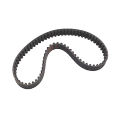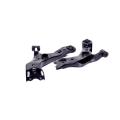Financing all Credit Types - 
Financing all Credit Types - 
Financing all Credit Types - 
Financing all Credit Types - 
Ensuring your vehicle's safety is paramount, and when it comes to safety, the brakes are undeniably critical. Among the intricate parts of a braking system, the brake caliper stands out as a pivotal component. This article delves into the essence of brake calipers, elucidating their significance in maintaining safety on the road. We'll discuss the telltale signs of brake caliper failure, highlighting the importance of timely inspections and maintenance.
Moreover, we'll explore the convenience and efficiency brought by mobile services such as Instant Car Fix. With their expertise in swift replacements and repairs, Instant Car Fix ensures that your brake calipers are in top-notch condition, providing peace of mind and enhancing your driving experience.
Brake calipers are vital parts of your car's braking mechanism, playing a crucial role in how your vehicle slows down and stops. Picture them as specialized clamps that securely grip the brake rotors, which are the circular discs attached to your wheels.
When you apply pressure to the brake pedal, a hydraulic system comes into action. This system uses brake fluid to transmit force to the pistons inside the caliper. As the pistons move, they force the brake pads to press against the spinning rotor. This contact creates friction, converting the kinetic energy of the moving vehicle into heat and slowing it down gradually.
The effectiveness of the brake calipers in squeezing the brake pads against the rotor determines how quickly and smoothly your car can decelerate. Properly functioning calipers ensure that your vehicle responds promptly to your braking commands, giving you the confidence to drive safely on the road.
Just like your favorite pair of shoes, brake calipers also experience wear and tear over time and use. Typically, these trusty components can endure anywhere from 75,000 to 100,000 miles, depending on how you drive and the conditions you encounter on the road.
However, it's essential to keep a keen eye on how they're holding up. Ignoring signs of wear or faulty performance can spell trouble, as worn-out calipers can compromise your braking system's effectiveness. This not only hampers your ability to stop safely but also creates potentially hazardous driving conditions. So, staying proactive and replacing worn or faulty calipers when needed is key to keeping your vehicle running smoothly and ensuring your safety on the road.
There are a few key reasons why brake calipers can stick:
Corrosion or Rust: Just like how your favorite tools can wear down with use, the metal parts of your brake caliper, including the pistons, slider pins, and bolts, can also face challenges over time. They may encounter corrosion, which is like a slow but steady battle against moisture and debris from the road. This corrosion can gradually hamper the movement of these essential components, almost like joints that have become stiff with age. As a result, your caliper may start to feel a bit "sticky," affecting its ability to function smoothly and potentially compromising your vehicle's braking performance.
Dirt and Debris Buildup: Dirt, rocks, and other debris can accumulate in the caliper mechanism, getting stuck in the grooves where the brake pads slide. This can prevent the pads from moving freely in and out.
Brake Hose Issues: Damaged or blocked brake hoses can limit the brake fluid flow to the caliper, causing the caliper piston to not retract correctly after releasing the brake pedal.
Worn or Faulty Caliper Components: The boot that seals and lubricates the caliper piston may wear out or tear, leading to debris entry and piston seizing. If not adequately lubricated, the caliper slide pins and bolts may also get stuck.
Parking Brake Issues: Issues with the parking brake cable or mechanism can result in the rear brake calipers becoming stuck
Car Pulling to One Side When Braking: When a brake caliper sticks, it exerts additional braking force on the corresponding wheel, leading to the car pulling or drifting towards that side during braking.
Smoke or Burning Smell Coming From The Wheels: A caliper that is stuck generates increased friction and heat in the impacted wheel assembly, potentially resulting in smoke or a burning odor.
Increased Fuel Consumption: The increased resistance caused by a sticking caliper demands more effort from the engine, leading to reduced fuel efficiency.
Humming or Vibration In the Steering Wheel: A stuck caliper can cause the brake rotor to warp, resulting in vibrations that can be felt through the steering system.
Difficulty Accelerating or Getting the Vehicle to Move: A stuck caliper causing brake drag can make it more challenging to accelerate the car, particularly when starting from a standstill.
Unnatural Sounds Like Grinding While Driving: The components of a stuck caliper may create grinding or unusual sounds as they come into contact with the rotor.
Wheels Feeling Very Hot to the Touch After Driving: The increased heat accumulation in the impacted wheel assembly causes that wheel to become noticeably hotter than the others.
Addressing a sticking caliper usually entails cleaning and lubricating the caliper slide pins or replacing worn brake pads. If the issue persists or if the caliper is damaged, a complete caliper replacement may be necessary. While DIY repairs are possible for those with mechanical skills, it's advisable to seek professional service.
Addressing brake concerns is essential for road safety, and although it can feel overwhelming, help is available. Whether you're encountering brake caliper issues or simply require an inspection, Instant Car Fix's mobile service provides a convenient solution. Expert technicians will visit your location with all required parts and tools, enabling them to conduct repairs or replacements on-site. This saves you time and eliminates the inconvenience of visiting a traditional garage.
Don't forget, brake calipers play a crucial role in your vehicle's performance and safety. Stay alert for any signs of wear and tear. For convenient repairs and peace of mind, think about utilizing Instant Car Fix's mobile services to keep your brakes in excellent condition.
Regular maintenance and prompt action on brake-related concerns are key to your safety and maintaining your vehicle's braking system. If you notice any indications of a malfunctioning brake caliper, remember that assistance is readily available through Instant Car Fix.





















